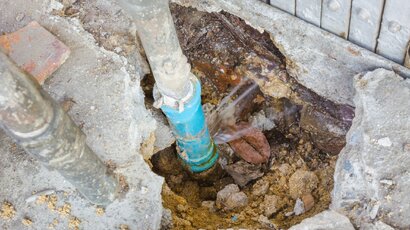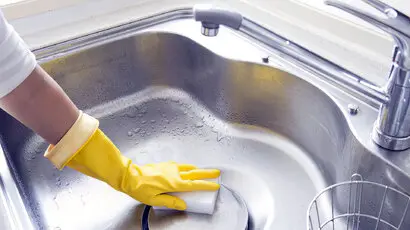Let’s start with a jaw-dropping stat: Australian households lose over 2.69 billion litres of water annually due to leaks. That’s not just water down the drain—it’s money, energy, and potential structural damage to your home.
Pipe maintenance isn’t just about fixing a tap; it’s about preventing plumbing disasters before they happen. It involves routine inspections, checking for minor leaks, keeping your plumbing system clear of blockages, and ensuring your piping systems stay in optimal condition.
Ignoring plumbing issues like a slow-draining sink or a damp patch under the house might seem harmless. But over time, they can turn into major problems that cause significant disruptions and demand costly repairs.
In this blog, we’ll walk you through essential tips and strategies to help protect pipes, avoid expensive repairs, and maintain optimal performance throughout the year. From spotting hidden leaks to understanding your pipe materials, we’ll arm you with everything you need to prevent system failures and keep your plumbing system humming along nicely.
Know What You’re Working With: Understanding Your Plumbing System
Before you can prevent leaks or detect early signs of trouble, it helps to know what you’re working with. Most Aussie homes have a mix of pipe materials—like PVC (often used for drainage),copper (ideal for hot water lines),PEX (flexible and used in newer homes), and galvanised steel (common in older places but prone to pipe corrosion).
![Pipes Needing Maintenance Pipes Needing Maintenance]()
These materials appear in different spots: PVC in crawl spaces or under sinks, copper around the water heater, and galvanised steel outside or in older bathroom walls. The age of your home and fluctuating water pressure can impact the longevity of your pipes. High pressure, especially without a pressure regulator, can accelerate corrosion and damage pipes faster.
It’s a smart move to locate your main shut-off valve early on—it’s often near the meter or out the front of your house. Drawing a rough layout of your plumbing will help you plan your maintenance activities and respond fast in an emergency.
Understanding your plumbing system is step one in building a solid maintenance program. It sets the foundation for effective regular maintenance and can help avoid major repairs or unexpected plumbing disasters down the track.
Routine Pipe Checks You Shouldn’t Skip
Routine maintenance is key to keeping your plumbing system running smoothly. Most homes should conduct regular inspections every three months, monthly if your home’s on the older side.
Start with a visual inspection. Look for visible leaks,dampness,rust, or water stains around joints. Mould, musty smells, or unusual sounds like gurgling may point to hidden leaks or trapped air in the pipes due to improper ventilation. A sudden drop in water pressure could suggest a clog or, worse, a breach.
Check under kitchen and bathroom sinks, around the hot water unit, near garden taps, and outdoor drainage areas. Don’t forget exposed pipes and places with poor adequate ventilation—these are high-risk zones for frozen pipes in colder regions.
It’s also important to note subtle changes. Keep a notebook or digital log and record each regular inspection.Noticing recurring plumbing problems—like stains reappearing in the same spot—can be the difference between a timely repair and a hefty bill for major repairs.
Well-documented checks are your secret weapon in maintaining the system’s performance and can help your professional plumber pinpoint issues faster. It’s all about spotting trouble early and saving money through early detection.
Keep Things Flowing: Preventing Blocked Drains
Blocked drains are a major concern for Aussie households, and mostly avoidable with some simple routines. In the kitchen,food waste,oil, and food particles arethe usual suspects. In bathrooms, it’s all about hair,soap scum, and yes—too much toilet paper or even paper towels.
Using drain covers or strainers in your sink and shower can help catch gunk before it becomes a clog. Establish a regular cleaning habit using warm water flushes or a vinegar and bicarb combo. These natural methods won’t damage pipes like harsh chemical cleaners or chemical drain cleaners can.
If you have a garbage disposal, be cautious—don’t throw bones, coffee grounds, or fibrous scraps down the sink. These can jam the system or block your pipes further along.
Avoid relying on drain cleaners too often. While they seem convenient, they can accelerate corrosion, harm corrosion resistant materials, and pose environmental risks. A better option? Book a yearly professional clean, especially if you’ve got a larger household or heavy kitchen use.
These small habits help keep water flow consistent, protect your piping systems, and extend the life of your drains. And if you’re following best practices, you’ll need fewer interventions from maintenance personnel—which means more money saved and fewer surprises.
Spot the Signs: How to Catch Problems Early
Catching plumbing issues early is all about recognising the small stuff. A sudden spike in water bills? It could be a hidden leak. That persistent drip? It might be a minor leak now, but it could lead to pipe corrosion later.
Watch for staining on ceilings or walls—it’s often a sign of a leaking pipe behind the surface.Gurgling noises from drains suggest airflow is blocked, hinting at a clog or ventilation issue. And if your water looks brown or smells odd, you may have corrosion or mineral deposits in older pipes.
We’ve seen plenty of homes where these subtle warnings were ignored—only for the owner to face expensive repairs months later. Early detection lets you act fast, avoid major problems, and keep your plumbing system in optimal condition.
Trust your instincts. If something seems off, it probably is. And remember, calling a professional plumber early beats scrambling during an emergency.
Season-Smart Maintenance: Caring for Pipes Through the Year
![Underground Pipes Needing Maintenance Underground Pipes Needing Maintenance]()
Australia’s weather can throw a curveball at your pipes. While freezing temperatures are rare, they can still cause frozen pipes in regions like the Highlands or inland Victoria. Insulate exposed pipes and make sure you’ve got proper ventilation to prevent condensation build-up.
Summer brings its own troubles—dry soil can shift and strain underground pipes.UV exposure weakens protective coatings, and tree roots search for moisture, often breaking into pipes.These seasonal effects can slow water flow and strain your system’s performance.
Increased summer water use also means higher water pressure, which can strain older pipes. Having a pressure regulator fitted can prevent long-term wear and keep your system in efficient operation.
Prepare ahead. Before heading off for the holidays, do a visual inspection, especially around outdoor fittings. And when water restrictions kick in, be aware of how shifting use patterns can affect pressure and stress your plumbing system.
Creating seasonal checklists as part of your maintenance program can help you maintain optimal performance all year.
Common Pipe Problems and How They’re Solved
Understanding what’s going on with your pipes can help you stay calm when something goes wrong. Here’s a breakdown of common issues and what to do about them.
1. Leaks and Corrosion
Leaky pipes are usually pretty obvious—dripping taps, puddles under the sink, or damp spots on walls. But pipe corrosion is sneakier. It often develops over time, especially in older systems, and can cause discoloured water or weak spots in the pipe.
2. Water Pressure Issues
A sudden dip in water pressure could point to a partial blockage, mineral build-up, or even a leaking pipe. It’s worth checking multiple taps—if it’s only happening in one spot, the issue is likely local.
3. Water Hammer
That loud banging sound when you shut off a tap? That’s called water hammer. It’s often caused by loose fittings or problems with pressure regulation, and if left unchecked, it can stress your entire plumbing system.
4. Discoloured or Smelly Water
If your water is coming out brown, yellow or with an odd smell, you could be dealing with rust, mineral deposits, or even contaminants due to pipe deterioration.
5. DIY vs Professional Help
You can handle small jobs yourself, like tightening joints, flushing the system, or clearing a u-bend. But for more serious issues like burst pipes, sewer odours, or anything involving hidden leaks, always call a professional plumber.
6. Why Early Fixes Matter
Acting early can mean the difference between a quick fix and major repairs. Delaying action might leave you with expensive repairs, damaged walls or driveways, and full-blown plumbing disasters. When in doubt, fix the small stuff before it turns into something big.
DIY Maintenance: What You Can Safely Do at Home
You don’t need to be a tradie to keep your pipes happy. Routine maintenance includes simple checks like running water through rarely used taps to avoid stagnation.
Look at all visible fittings—especially around joints—for minor leaks or drips. If you notice moisture, dry the area and recheck in a few hours. It might be a slow leak.
Outside, make sure your gutters and stormwater drains are clear. Blockages can cause backflow that strains your system or floods crawl spaces.
Avoid using harsh cleaning chemicals, and don’t mess with cutting or replacing pipes. Leave that to maintenance personnel or a professional plumber.
When It’s Time to Call a Plumber
![Pipe Maintenance Outside Pipe Pipe Maintenance Pipe]()
Some jobs are best left to the pros. If you’ve got burst pipes,sewer smells, or a blockage that keeps coming back, it’s time to call in a professional plumber.
They’re trained to handle complex jobs safely and legally, and their work ensures your insurance stays valid. Plus, regular servicing from licensed plumbers helps you stick to best practices and maintain compliance.
It’s not just about fixing problems. It’s about peace of mind.
Small Fixes, Big Protection
It’s the little things that go a long way. By staying on top of routine maintenance, you’re not just protecting your pipes—you’re safeguarding your home’s value and comfort.
Regular inspections and timely repairs help keep water clean, bills down, and your plumbing system in efficient operation.You’ll avoid those frantic calls during a public holiday or sleepless nights wondering if that drip is serious.
And remember, if you’re unsure where to start, don’t risk it.
If your pipes are showing signs of age or you’re unsure where to begin, WP Plumbing is here to help. Our licensed team offers expert pipe repair services across Melbourne, delivering reliable solutions to keep your plumbing in top condition. Reach out today for dependable service and






